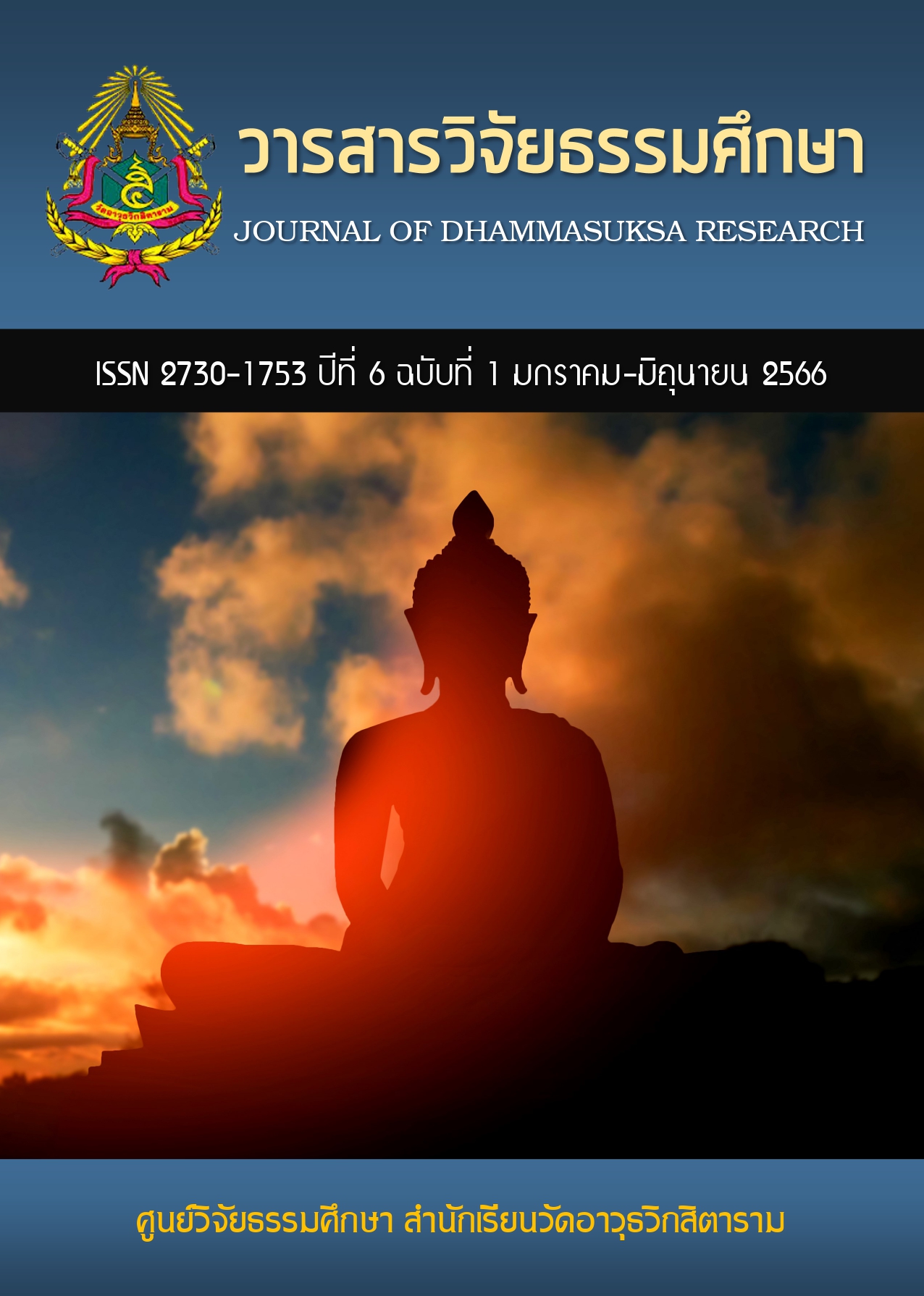INTERPRETATION OF TRUTH FOR THE IMPROVEMENT OF QUALITY OF LIFE ACCORDING TO MODERATE POST-MODERN PHILOSOPHICAL CONCEPTS
Keywords:
Truth, Authentic Happiness, Moderate Postmodern PhilosophyAbstract
In the philosophy, truth means the status of reality reflected through human’s perception to be individuals’ paradigm. Each human considers truth and interprets it to develop his/her quality of life based on truth he/she sees, and the life goal is the authentic happiness understood by each one. The different interpretation causes humans to have the different drive and movement. This article aimed to analyze, appreciate, and apply the interpretation of truth according to the moderate postmodern philosophical concepts by using the philosophical methodology such as dialectic to exchange reasons between both parties or between modern paradigm and moderate postmodern paradigm, consideration to present the critical reasons, and value evaluation. The result showed that the opposite party gave a reason to prove that truth only interpreted by the modern network system was true. The opposite party viewed that “truth must be interpreted by the modern network system only” because it was reliable and universally true. However, the interpretation of truth for the improvement of the quality of life was not limited in the modern network system only because such conclusion came from the interpretation that ignored the value of truth at the individual level and others beyond the network system. This does not conform to the reality of life changing all the time, which is the main point of the postmodern philosophy, especially creativity power, that is, universal knowledge referred by the modern network system came from the creativity power of persons whose thought was out of box. In conclusion, although truth discovered by each person would be conflict the network system, if the interpreters considered without attachment, and used the creativity power, adaptivity power, collaboration power, and requisitivity power to reach the authentic happiness in each life span, they would accept that they were the truth capable of developing the quality of life.
References
กีรติ บุญเจือ. (2545ก). ชุดปรัชญาและศาสนาเซนต์จอห์น เล่มต้น เริ่มรู้จักปรัชญา. กรุงเทพฯ: มหาวิทยาลัยเซนต์จอห์น.
เมธา หริมเทพาธิป, กีรติ บุญเจือ และพระมหามฆวินทร์ ปุริสุตฺตโม. (2558). เกณฑ์ตัดสินความจริงตามหลักกาลามสูตร : การศึกษาเชิงวิเคราะห์ วิจักษ์ และวิธาน. วารสารวิชาการรมยสาร. 13(3): 69-78.
รวิช ตาแก้ว. (2561). Moderate post-modern principle. [ออนไลน์]. แหล่งที่มา: https://philosophy-suansunandha.com/2018/05/23/postmodern-principle [22 ธันวาคม 2564].
รวิช ตาแก้ว. (2562). goodness-beautiful-life. [ออนไลน์]. แหล่งที่มา: https://philosophy-suansunandha. com/2019/06/18/goodness-beautiful-life [22 ธันวาคม 2564].
สำนักงานราชบัณฑิตยสภา. โลกทัศน์. [ออนไลน์]. แหล่งที่มา: http://legacy.orst.go.th/?knowledges=โลกทัศน์-๑๐-กรกฎาคม-๒๕๕๐ [22 ธันวาคม 2564]
สุดารัตน์ น้อยแรม. (2557). Authentic happiness. [ออนไลน์]. แหล่งที่มา: https://philosophy-suansunandha. com/2014/07/08/ความสุขแท้ [22 ธันวาคม 2564]
สิริกร อมฤตวาริน. (2565). Sufficient Life. กรุงเทพ: ห้างหุ้นส่วนจำกัด ปิเปส
Dilthey, W. (1976). Selected Writing. Cambridge: Cambridge University Press.
Jones, W.T. (1969). A History of Western Philosophy. New York: Harcourt Brace.
Peter Halfpenny. (1982). Positivism and sociology: explaining social life. London: George Allen & Unwin.
Additional Files
Published
How to Cite
Issue
Section
Categories
License
Copyright (c) 2023 Journal of Dhammasuksa Research

This work is licensed under a Creative Commons Attribution-NonCommercial-NoDerivatives 4.0 International License.



